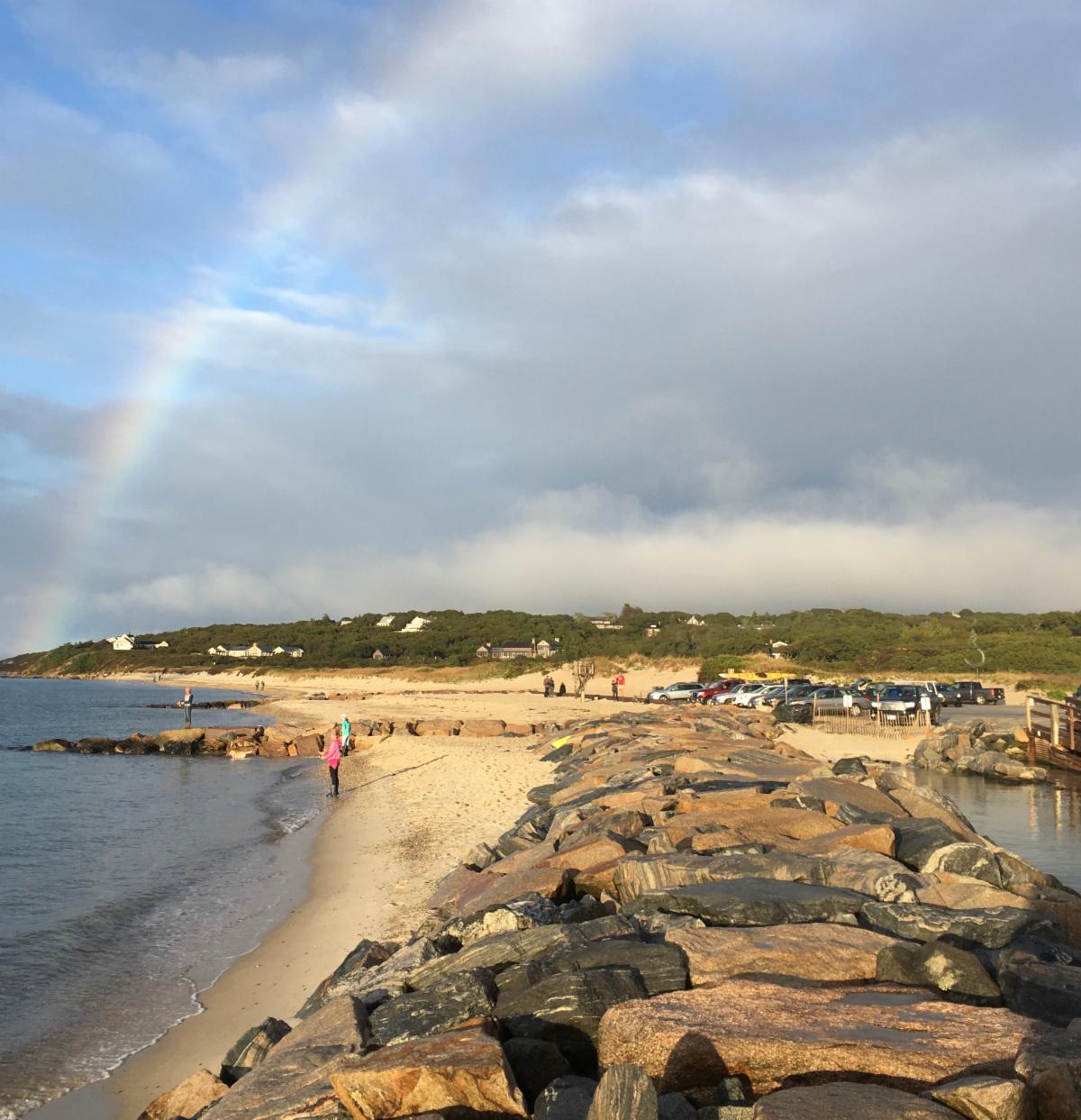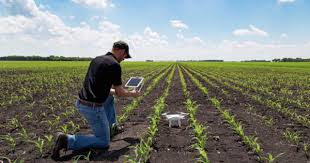
Martha's Vineyard is suffering from the ocean's greatest pollutant, nitrogen runoff. Harmful algal blooms often with blue-green algae (cyanobacteria) fueled by nutrients (mostly nitrogen) closed shellfish beds in past summers. Edgartown's Katama Bay had been closed. Rust colored algal blooms smothered Lagoon Pond between Oak Bluffs and Vineyard Haven. Lobstermen out of Menemsha hauling traps draped in 30 to 40 pounds of weeds had to carry large vats of boiling water to rid traps and line of weed. Tisbury Great Pond had been closed to swimming, paddling, sailing, and pets. There were times when the stench was unbearable.
This summer, ORI took action, invited in through the back doors of Vineyard town governments. We wrote and spoke with all six municipal conservation commissions asking that the wetland regulations they write include the conditions of no fertilizer, organic or chemical (the blooming algae don't make the distinction), on established lawns.
West Tisbury and Chilmark did us one better they put ORI on their meeting agenda and unanimously supported an island-wide bylaw prohibiting the spread of quick-release fertilizer (permitting a little bit of 100% slow-release in spring or fall). The work of ORI summer interns Jessie McIsaac and Morgan Berman succeeded i
n raising awareness and suggesting actions to stem the flow
of pollutants on the Vineyard. How they overcame the obstacles is described in the blog post: Cleaning the waters of Martha's Vineyard.
Now the real work begins. We will build coalitions of eco-friendly groups and work with all stakeholders to address the concerns each group may have. Our goal is to raise awareness of how using slow-release fertilizers can build healthier lawns with deeper roots. These lawns capture more carbon, put on more foliage, and absorb more water during extreme weather events.
|
|
Kanken Art with Taryn Johnson
by Fjällräven North America
Saturday, August 17, 2019
1:00 PM - 5:00 PM
Join us in welcoming Fjallraven Local Guide Taryn Johnson at Fjallraven, 63 Church Street, Cambridge MA. Taryn has hand-painted a one-of-a-kind Kanken backpack.
Rob Moir will be in the Cambridge store talking about ORI's work cleaning the waters and the opportunities we provide to empower people to make a difference for our planet.
If you would like the chance to win one of Taryn's illustrated Fjällräven backpacks. Buy a raffle ticket to benefit the Ocean River Institute for $1 a ticket, 6 tickets for $5, 12 for $10, etc.
|
 |
Boston Landmarks Orchestra Annual Green Concert
The Boston Landmarks Orchestra and the New England Aquarium present their Annual Green Concert on Wednesday August 14th at 7pm at the Hatch Memorial Shell on the Esplanade. There will be a stunning video program on the impacts of climate change paired with a moving orchestral program. Once again, ORI will be there setting up our table by the Charles River and sharing ideas for how to fight climate change.
Christopher Wilkins, conductor
Cassandra Extavour, soprano
Modest Mussorgsky Night on Bald Mountain
Ralph Vaughan Williams Sinfonia antartica (Symphony No. 7)
Samuel Barber Adagio for Strings
Antonín Dvořák Symphony No. 7 in D minor, Op. 70
Reverence for nature and a sense of foreboding reverberate in Dvořák's masterpiece, his seventh symphony. The music of Vaughan Williams's Sinfonia Antarctica-first conceived as a film score-accompanies a new film shot entirely in Antarctica. This Photographic Essay by David Arnold will be paired with videos of the environmental impacts of climate change. Stunningly evocative music accompanies dramatic landscapes captured in film and photography. David Arnold's photographic essay on climate change astounds with its beauty and shocks with its implications.
Don't miss the Annual Green Concert on Wednesday August 14th at 7 pm at the Hatch Memorial Shell (
47 David G Mugar Way, Boston)
.
Rain Date: Thursday, August 15, 2019. If it rains on August 15 as well, the concert will be held at First Church in Cambridge 11 Garden St, Cambridge, MA 02138.
|
 |
Friday, August 16-Sunday, August 18 is the Twelfth Annual Boston GreenFest Festival! Bring your family and friends and learn about how to create a healthier, more sustainable world through the ever expanding network of concerned citizens.
Back by popular demand from Farmers' Markets, the Ocean River Institute's table will feature clean water science in a jar and on a splash board.
Learn about how lawns grow deeper roots and grass becomes more resilient to drought when you use less fertilizer. Using less fertilizer will stop nitrogen pollution and promote deeper roots that retain more water during extreme weather events.
Stop by ORI's table at Boston GreenFest to discover how healthy lawns are fighting climate change. Create a deluge of rain with a turkey baster on a washboard to see which Lego houses fare better, those with spongy lawns or stone patios. Not convinced, try it again.
We hope to see you at Boston GreenFest this weekend
!
|

Ed Smith, Head of Carbon at Indigo Ag, is Rob's guest on Moir's Environmental Dialogues. Indigo Carbon is a two-pronged program, using seed microbiology and artificial intelligence, to reduce atmospheric carbon. The Terraton Initiative is a project to sequester one trillion tons of carbon with a system of carbon credits and to challenge agriculture to sequester greater amounts of carbon by modifying their practices. This newly-announced initiative is garnering global attention and local businesses in greater Boston.
David Wagner is an environmentalist and former energy consultant. He explains the workings of utilities and the electric grid. Efficiency is the name of the game in the energy sector. Energy conservation is often more than half of the battle to reducing our carbon footprints. David provides helpful tips for homeowners to avoid peak demand times so that dedicated utilities need not fire-up during those times of the day.
The importance of efficiency and new approaches to carbon management becomes clear when Ed and David talk about innovative practices for carbon management. Capturing carbon and reducing emissions save the users money and are the ways to a sustainable future.
|
|
Choose from more than 100 radio broadcast episodes, also free on iTunes
Join ORI's Fan page on Facebook.
We've surpassed 6,000 likes. When you and friends like us, it helps us get the word out and makes it easier for others to donate.
Wear with pride ORI logo items.
|
|
|
|
|